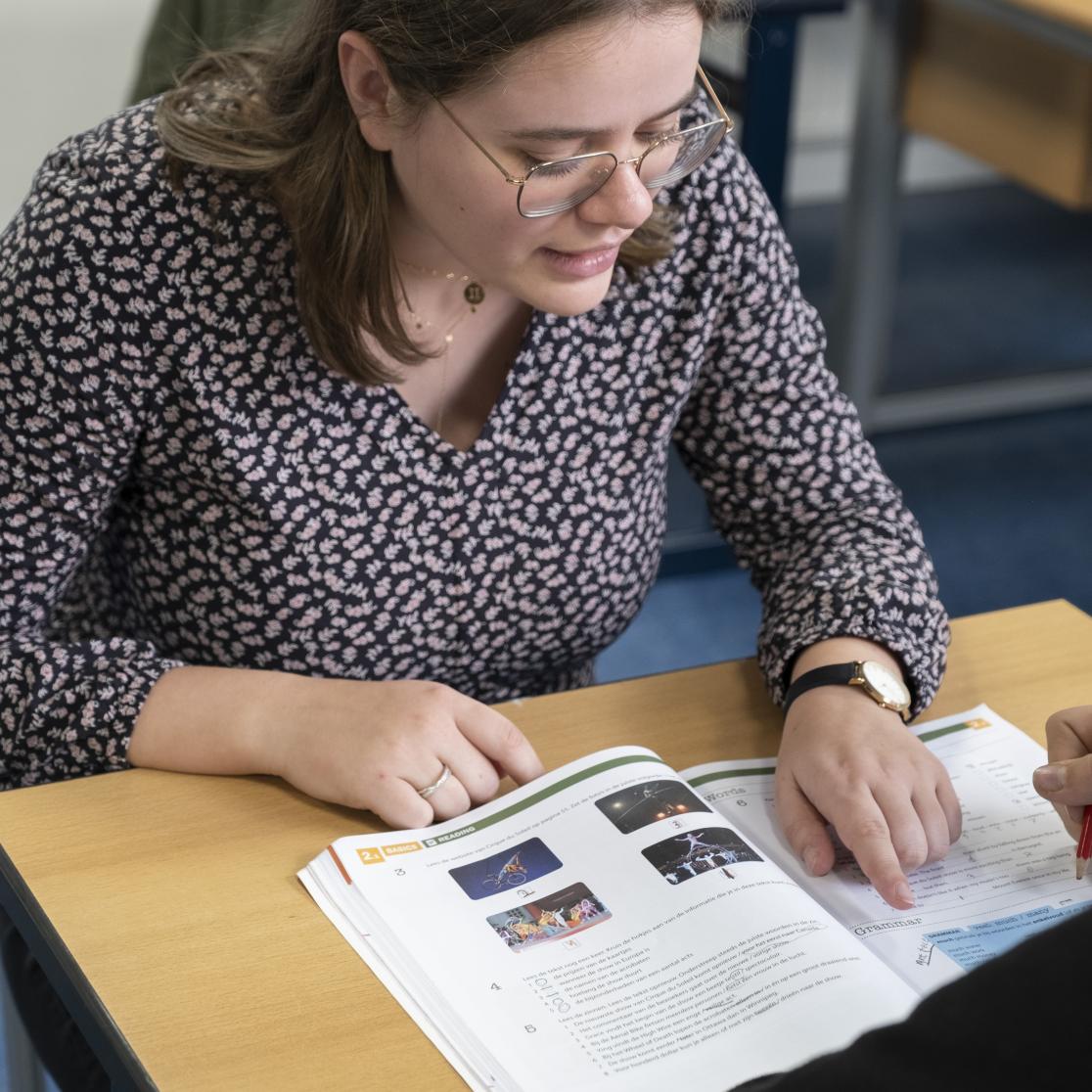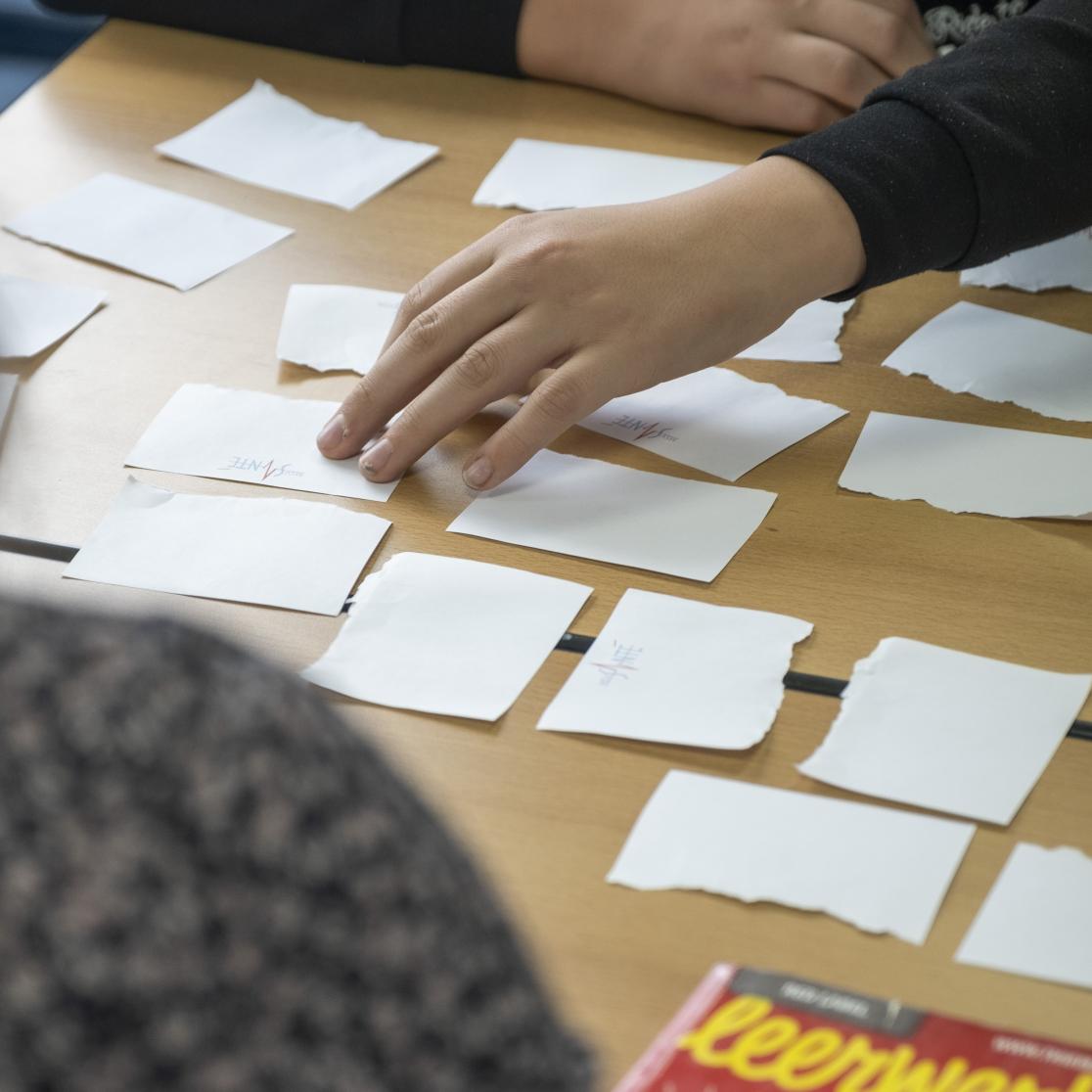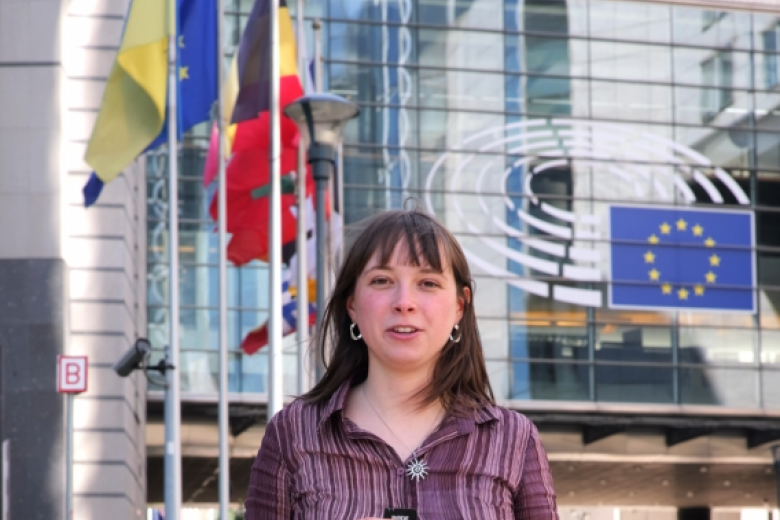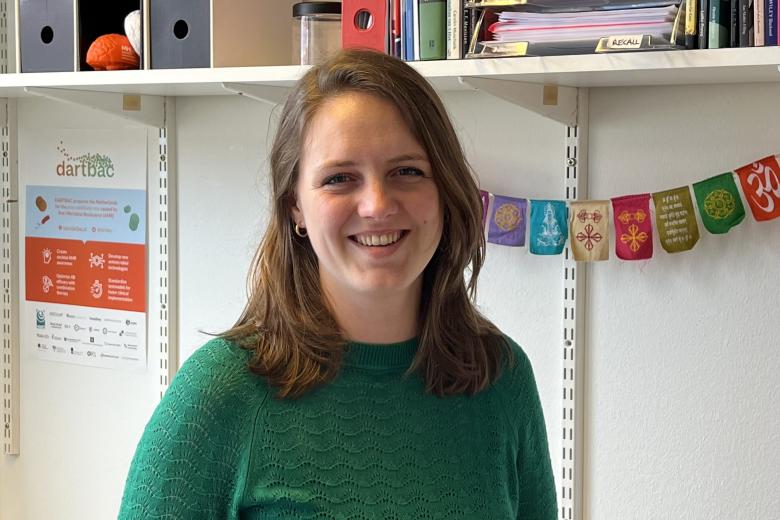Learning by teaching young students how to learn
Match is for students who want to develop themselves while making a social contribution in Maastricht. They can make a real difference and it also looks good on their resume. A good example is the Match For Brighter Futures (MFBF) project, in which UM students give secondary school students extra attention and guidance when doing homework. If the match is right, they both benefit.
A good pairing is key and the search for one begins right at the first introductory meeting with the student, says Audrey Bams, Master's student in Health Food Innovation Management and project assistant at Match. This meeting touches on many things, but mainly focuses on why students want to make themselves useful and what their hobbies and interests are.
"So we weren’t not only looking at specific subjects for potential tutoring, but also that the student is matched with a pupil or student with whom they have common interests. We then write a profile of the student and send it to the secondary schools. Next, the young students' mentor ensures a good match between the tutor and the pupil or student. Not only in the area of homework support, but also on a personal level. So if the pupil likes gaming and the student does too, this could make a good match."
Developing skills
For the secondary school student, the pairing with a university student can be a godsend, especially if no resources are available for regular homework tutoring, which is more expensive. But what's in it for the university student? Volunteering is good for students anyway, is Match's main philosophy. It helps them develop the social and professional skills they will need later on in life. It shows university students what their strong and weak points are and challenges them to apply their talents and skills in everyday practice.
They aren’t thrown in at the deep end, Audrey says reassuringly. "Before these students start tutoring, they are given a workshop with follow-ups every three months. Each time, a different theme is discussed: the essentials of coaching, talent development or teaching a student how to learn." During these sessions, students share their experiences and receive feedback. "We give them a clear framework to help them move forward."
Financial reward
That is also one of the benefits, because people aren’t doing it for the money. "It's not a side job; students who participate get a small volunteer fee. It’s five euros if you’re 21 years old." Moreover, the coaching, homework tutoring and WhatsApp contact requires a maximum of three hours a week. That includes writing updates on the tutee's progress and attending workshops.
No big deal. But the money wasn’t why Annemarie Sänger applied for MFBF in the first place. The 21-year-old student is in her third year of Health Sciences and has been giving homework support to a high school student since April 2021.

"If I were working for a commercial company, I would be doing it mainly for the student. That's why it doesn't matter to me how much I get paid. The fact that I can support a pupil in something is enough for me to motivate myself to do this. Of course, it would be different if I were working 20-hour weeks. Initially, I spent two hours a week on homework support, since the beginning of this academic year it’s only one hour, because my studies take more time. The student and I meet at school when classes are over, then we work together for an hour or so."
This type of support is not just about transferring knowledge of subjects that pupils have difficulty with, Annemarie explains. "Some pupils find it very difficult to plan ahead, for example. In that case, the focus is more on coaching and less on the curriculum subject. You are actually both a personal coach and someone who has knowledge of a particular subject."
Here’s where MFBF's workshops come in. They’re designed to provide support for student motivation problems and other situations that a student may encounter. "They also help you in your own development in this as a coach and as a student. How do I use my skills in the right way? We learn to reflect on that."
The real reward
Annemarie doesn't have to think about this for long: "I am actually constantly learning, finding ways for example to make sure that my student can remember things and offering the subject matter in a way that he can understand. Converting theory into practice is not easy without having any teaching experience. I have also noticed that I can apply the skills I develop during my educational minor, which I do as part of my studies, during homework support."
"But basically, MFBF is just fun! It takes little time and you get a lot in return. It’s a great way to contribute to the development of students who have difficulty learning at school and cannot always get enough attention during regular classes. This is the way to give them a little help."
Photos: Joris Hilterman

Also read
-
Europe Day
To celebrate Europe Day on 9 May, FASoS student Lisa travelled to Brussels to meet with five of our inspiring alumni who are currently shaping European policy and advocacy. In this video, they share why Europe Day matters, how it’s celebrated in Brussels, and what the idea of Europe means to them.

-
Evidence-based health tips for students
In the upcoming months, the Faculty of Health, Medicine and Life Sciences will share tips on Instagram on how to live a healthier life. Not just a random collection, but tips based on actual research happening at our faculty. The brains behind this idea are Lieve Vonken and Gido Metz, PhD candidates...

-
“I want to make girls like me stronger”
The first paper ever written by Jiaru Zheng, a second-year bachelor’s student in Digital Society, was published as a journal article. The paper focused on the pop music album 3811, in which singer Tan Weiwei advocates for the status of women in China.
